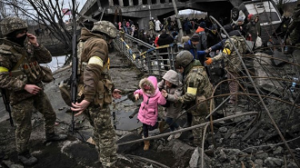
Arquivo para April 22nd, 2024
Hyperpolitics and war
When Peter Sloterdijk wrote “All in the same  boat: essay on hyperpolitics” we were on the threshold of the third millennium, Manuel Castells was writing Sociedade em Rede and Edgar Morin was writing about Cabeça Bem done, rethinking reform, reforming thought, they were attempts to wake up and make humanity move towards a less dark future.
boat: essay on hyperpolitics” we were on the threshold of the third millennium, Manuel Castells was writing Sociedade em Rede and Edgar Morin was writing about Cabeça Bem done, rethinking reform, reforming thought, they were attempts to wake up and make humanity move towards a less dark future.
Sloterdijk also wrote “If Europe awakens”, he calls it the Empire of the Center and pays attention to its colonialist past and the need for a new future and rethinks war, a topic so linked in the country that triggered the Second World War.
These are all thoughts that tried to redirect a dark future from the possibility of a new war. In Everyone in the Same Boat, Peter Sloterdijk revisits the political project that was born in classical antiquity, the attempt to organize the State, and says: “How can they “talk” to such large numbers of people and convince them to feel like they are participating in what is “great” – until they reach the willingness to face death in exercises of millions against forces of equal order of magnitude, in order to assure “their own “successors what ideologues call the future” (Sloterdijk, 1999, p. 31).
Contrary to the optimism of Castells and Morin, not only justifiable, but desirable, of a more civilized and humane future, Sloterdijk warns that this connected hypersphere, see that social media were just nascent for these three great thinkers, was for the German, a dangerous future of hyperpolitics.
“The first gestures of this instinctive holism are attempts to describe the cosmos as a larger house and people as larger families” (Slotertijk, p. 32), and adds that in fact, “homo politicus and homo methaphysicus belong together historically; promoters of the State and prospectors of God are evolutionary twins” (Sloterijk, p. 33), of course it is not the view of everyone, much less of men in power, the great statesmen who think in this holism no longer exist and now it is the empire of force and monolithic, authoritarian and hateful thinking.
The Greeks’ political project for him can be called “metallomaniac”, but he warns that this is the man who “meddles in big, bigger issues to have something that he will look at and then abandon. But should they call those who, once they have grasped great things, will never abandon them? I propose megalopaths” (page 34).
Also great empires: the Persian, the Roman, the Mongols who came to dominate half of Europe, the Turkish-Ottoman and more recently Napoleon and the “forgotten” colonies in Africa that were nothing more than an extension of the Central Empire, as Sloterdijk calls it the Europe.
“State Humanism has since been the search for a fair center – and since the Roman reception of this Greek idea, this search has carried its name still known today: Humanity” (pages 35-36).
Sloterdijk questions this model of homo politicus, the “pontifex maximus”, “how do we become raja? How do we become Caesar? How do we become consul, senator, emperor? How must someone live to enter the history books like Metternich, Lord Morlborough or Bismark? (page 37).
The idea of politics as metanoia, this was the initial intention of Paideia for example, is no longer true in war, Sloterdijk quotes Goethe: “the man who does not suffer scourges cannot be educated”.

